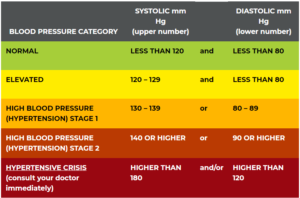
A nosebleed especially at night in a person with health anxiety will bring to mind cancer as a cause, especially since cancer CAN arise inside the nose.
“In the U.S., around one person in 200,000 will be diagnosed with some type of sinonasal cancer,” says Gene Liu, MD, MMM, President, Chair, Department of Surgery; Chief, Division of Otolaryngology, Cedars-Sinai Medical Group.
“The likelihood that nosebleeds are caused by a cancer in the nose or sinuses is also significantly lower than one percent,” continues Dr. Liu.
Eighty percent of patients with cancer involving the nasal cavities or sinus area are at least 55 and most are men.
“Nosebleeds are almost always caused by dryness, trauma from nose blowing or nose picking, high blood pressure, physical strain and many other straightforward and simple reasons….and almost never from cancer.”
Cancer involving the sinus or surrounding cavities (also called “paranasal”) is really rare, even in smokers and industrial workers exposed to certain dusts – two at-risk populations.
But it’s only fair to point out that there indeed are different kinds of tumors that can arise in the sinus or surrounding areas. However, some paranasal tumors are benign.
There are other kinds of cancers that can get in the nose and cause bleeding. More on this shortly, but below are benign explanations for nighttime nosebleeds – by far your most likely cause.
Depending on the cause, your nosebleeds may be occurring only at night. Your bedroom might have dry air, and you’re in there for many hours sleeping.
If your nose is still bleeding at night even though there’s a humidifier in your room or naturally non-dry air, you’ll want to ask yourself how aggressively you blow your nose shortly before going to bed. Blowing the nose is a nighttime ritual for many.
Do you insert things in it such as Q-tips or even long fingernails to clean it out before bedtime?
Scooping actions and hard blowing can rupture very tiny blood vessels in the nostrils and lead to bleeding.
If you’re on a blood thinner, this will make a nosebleed even more likely in the setting of dry air or hard blowing/picking.
Additional Causes
The following can cause a nosebleed any time of the day.
• Abrupt temperature changes
• Allergic rhinitis
• Atherosclerosis (hardening of the arteries)
• Colds
• Fracture. A hairline fracture can go unnoticed. At the time of trauma you may get a bloody nose, then simply shake it off, having no idea it’s been fractured.
It may still look the same, no swelling, and you’ll think that all you had was a bloody nose. But the unhealed fracture can continue to cause this problem, even though there’s no pain.
• Idiopathic (no known cause)
• Sinusitis
• Sprays. Nasal sprays can rupture the tiny vessels simply by their expelled force—when sprayed straight up the nostril rather than at a more sideways angle.
High Blood Pressure
Hypertension normally does not cause symptoms; you can’t “feel” it. Buy a home BP machine and see what your BP is. The American Heart Association guidelines are below.

Transient hypertension from straining out a bowel movement may also trigger bleeding.
Are your nosebleeds on the same nights that you strained like mad with constipation?
Other Cancers that Can Affect the Nose
• Melanoma. Yes, this skin cancer can arise in dark places. A subtype called mucosal melanoma may grow inside the nasal cavity and cause heavy nosebleeds.
Melanoma of the nasal cavity comprises one percent of all melanomas (Tiwari et al).
• Non-Hodgkin’s lymphoma (extremely rare for it to grow in the nasal area).
• Squamous cell carcinoma. This skin cancer as well can develop in areas hidden from sunlight. The nosebleeds it causes appear in the form of blood stained discharge only.
• Leukemia. About 60,000 new diagnoses are made annually in the U.S.
• Metastasis from a distant primary tumor (rare to the nose).
If you’re having nosebleeds ONLY at night, this makes it even less likely that it’s something sinister. After all, cancer doesn’t care what time of day it is when it produces symptoms.
Another tipoff that all is probably well is the absence of any of the following:
• New lump under the eye or near the nose
• Impaired sense of smell
• Gradual displacement of an eyeball
• Vision problems
• Trouble opening the mouth
• Change in voice
• Facial numbness
• Unexplained drenching night sweats
• Unexplained weakness or weight loss
Keep in mind that these symptoms can have benign causes such as benign tumors and TMJ disorder.
But if you do have them, don’t delay in getting a medical exam to hopefully rule out a serious cause.



























